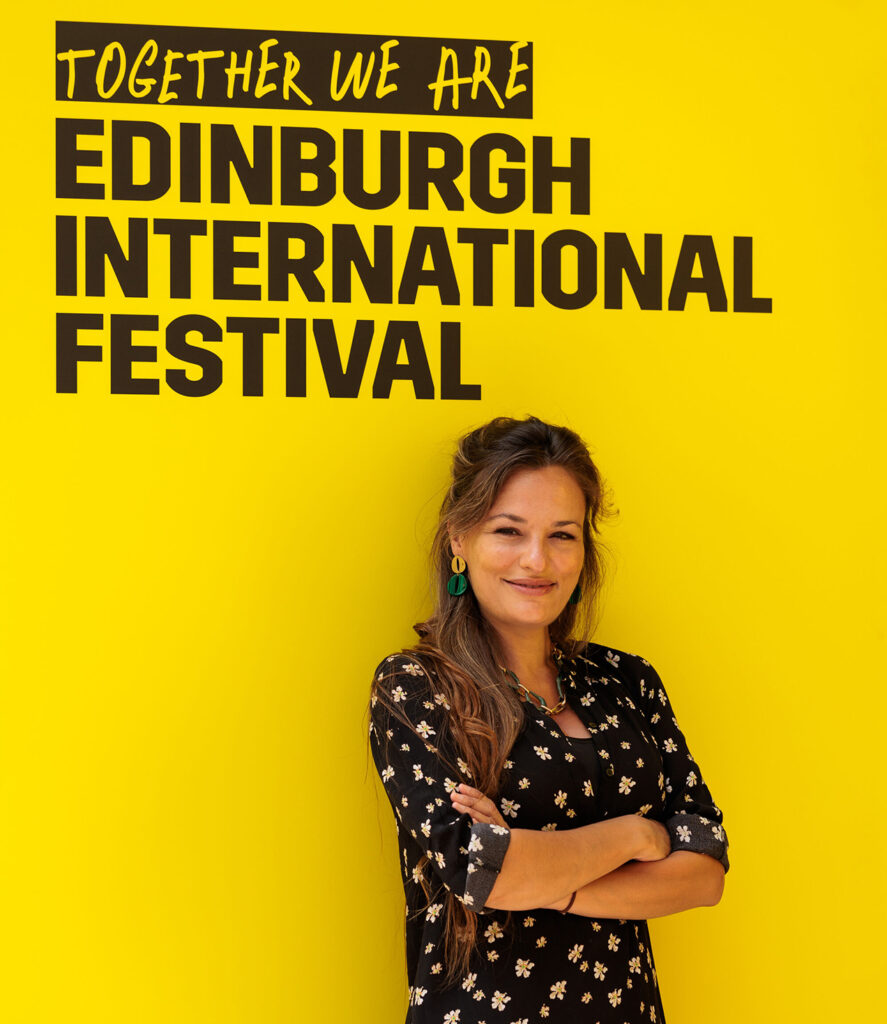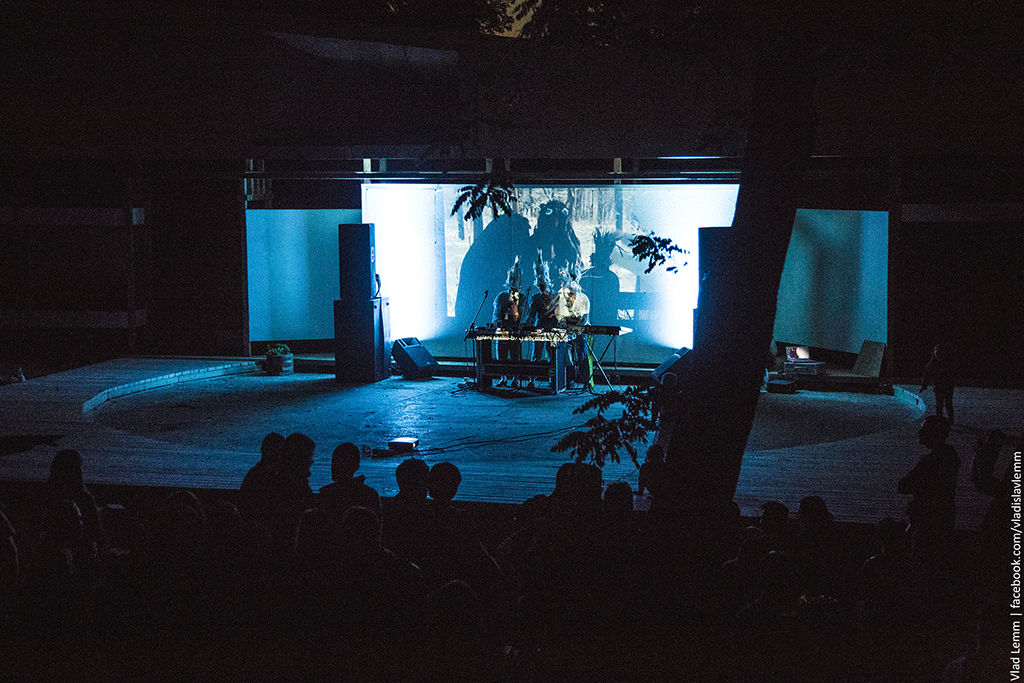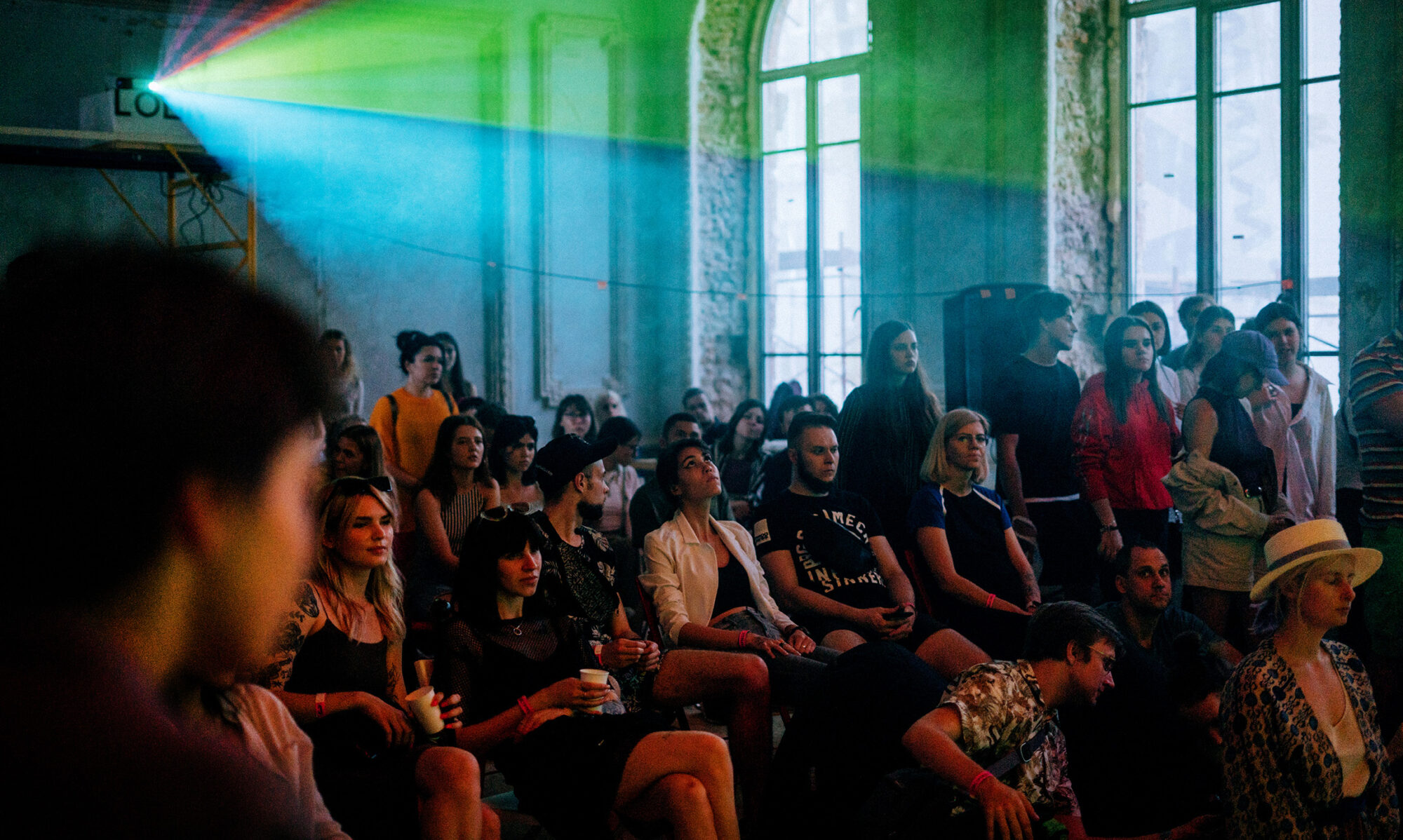Edinburgh: the Festival, the City, the artistic quest
Nicola Benedetti’s journey as an Artist and Artistic director

Nicola Benedetti is the Festival Director for the Edinburgh International Festival. She took up the position in October 2022 having previously had a long-standing relationship with the Festival as a performer, including a residency in 2021. Nicola is both the first Scottish and the first female Festival Director since the Festival began in 1947.
Nicola is one of the most influential classical artists of today, performing internationally as a violinist. Born in the Scottish town of Irvine, of Italian heritage, Nicola began violin lessons at the age of four, studied at Yehudi Menuhin School and has since toured with some of the world’s greatest orchestras and conductors.
She has won GRAMMY and Brit Awards and was named BBC Music Magazine’s 2021 ‘Personality of the Year,’ awarded in part for her online support of musicians during the pandemic, a reflection of her passionate work as an ambassador for music education.
What makes this relationship between the Edinburgh International Festival and the city of Edinburgh special? How has Nicola Benedetti’s perspective as a performing artist shaped her approach to curation? These questions open the discussion on the importance of holding in balance a deep respect for the past whilst providing a fertile ground for daring innovation, risk and unbridled creativity.
Becoming an artistic director
As she stood in the Usher Hall opening the European Arts Festivals Summit 2025, Nicola Benedetti remembered when she first performed in the same venue at just 14 years old. That sparked in her a lifelong dedication to the connection between music and education and the incredible impact that music can have, where words cannot.
“I will never forget the first invitation to make an official debut at none other than the Edinburgh International Festival… performing with the London Symphony Orchestra. These are invitations that become forever etched in your body’s memory: there was a tangible sense of occasion, prestige, internal critique and expectation to deliver.”
She understood that in order to elevate the arts to a level of excellence, we have to keep our intensity, integrity, and professionalism – both on stage and off stage – as resistance to the homogenisation that we are all witnessing – not just in the world of the arts.
During the second summer of COVID in 2021, the Edinburgh International Festival invited her as an artist in residence. Nicola was shocked as she received an unexpected phone call: nothing could have prepared her to be considered as the new festival director. The interview process allowed her to reflect on the impact of being an artist leading such an important festival: “it was the greatest gift of my life – experientially, socially, intellectually, and artistically”. To her, being an artistic director implied a strong civic and moral responsibility, the opportunity to make a real difference in people’s lives, something she took very seriously.
Historical roots
Edinburgh now hosts more than 11 festivals, its population ballooning from half a million residents to nearly 4 million people for August each year, bringing in an estimated 600 million pounds plus to the Scottish economy each year. The roots date back to 1947, in the desperate need to believe and to show that people are capable of something higher than the destruction of World War II. So a European impresario and cultural advocate, Rudolf Bing, the General Manager of Glyndebourne Opera, came to Scotland and joined hands with civic and artistic leaders to create an event that would transcend cultural and political boundaries.
While other European cities celebrated specific art forms, the ambitions in Edinburgh were deliberately broad and philosophical, consolidated in offering an alternative view to the division and hatred that had torn Europe apart. This required a combination of artistic genius from the artists, collective determination from the City of Edinburgh Council and the British Council, the civic participation of the people of Edinburgh who opened up their homes to artists and visitors, and wrote in high numbers to the Minister of Fuel and Power, insisting that the castle must be lit up. Citizens offered their rations of coal to light up the castle for four nights. As for good luck, it came actually from a horse race: the Earl of Rosebery happened to have a horse who won the Gold Cup, and he donated the winnings to get the ball rolling for the Edinburgh International Festival.
Bringing European arts to Scotland was not without its controversy. The question of who makes the call on something prestigious quickly came under scrutiny: was this truly a Scottish festival, or was it England dictating what to do again? Individuals and theatre collectives from all over Scotland decided to take matters into their own hands. They descended upon the capital city and set up their own performance spaces. The Edinburgh Fringe Festival was born at the same time as the official one.
How to provide the deepest possible experience to the broadest possible audience
As director, Nicola’s vision is to uphold the unwavering traditions of quality, excellence and internationalism that this festival has sustained for almost 80 years. Nicola always has her family in mind, as they are not artists or people who regularly or naturally would go to performances. “I have seen the difference that context makes to those who do not feel that this complex art language is speaking to them”. Disarming their fear of not knowing and not understanding can make the difference. To do this, there must be a contextualisation effort from the festival: explaining the context, the why and how of the art creation, the festival allows people to enter a space that they are, perhaps, not accustomed to with less fear and with more of an open heart and mind.
Where to start? For Nicola, we should start from where we are, what embodies the mythology, creativity and humanism that define Scotland. Universal tales, stated simply and often, create a platform for increased plurality and tolerance. It is a festival of ideas, of thoughts and stories, but expressed through the performing arts. Welcoming people into a sense of community across artists and audiences of all generations, developing a deeper culture of listening and a freer, daring culture of performance.
Saving democracy through democratising culture
According to the Democracy Index, 20 EU member states are experiencing a decline in their democratic systems. Culture is increasingly acknowledged by EU policymakers as a means to bridge ideological and emotional divides and to bolster democracy, which faces pressures from both polarisation and the individualisation of societies.
However, cultural consumption has also been affected by these transformations. The platformisation of culture has led to a reality where not only cultural products but also cultural consumers are ‘manufactured’, as they are grouped and continuously presented with content based on their registered preferences. Additionally, culture itself has become a battleground for identities and ideologies, and cultural workers are part of the same polarised society, segmented into echo chambers. To rescue democracy, culture must first become democratic itself – to foster genuine democratic engagement, which encompasses not only the right to vote but also the right to be voted. If we are to truly save democracy in Europe, we must move beyond the broad concept of ‘access to culture’ and strive for cultural democracy.
Communication, involvement and accessibility: key areas the festival has embodied over past three years
The communication focuses on a clear, compelling yearly narrative. According to Nicola, this approach guides both the festival audiences and the team’s internal dialogue and curation as well – creating a collective journey through a myriad of perspectives.
For the first year under Nicola’s direction (2023), the festival drew inspiration from Martin Luther King Jr.’s book Where Do We Go From Here? Chaos or Community?, exploring via the arts his belief in the capacity to unite and elevate all people around a higher purpose, while dealing with his unimaginable disappointment in the limits of that capacity.
The 2024 edition, Rituals That Unite Us, explored how collective experiences and rituals can bind us by forcing us to inhabit a common space. Against that, the loss of symbolic and unifying power, along with the tendency to turn inward, puts our community at risk. The team was inspired by The disappearance of rituals (Byung-Chul Han, 2019).
Ironically, Nicola points out that this year’s theme, The Truth We Seek, was set before Donald Trump’s election – the festival “could not have known how pertinent this would be. But this particular theme is a place where fact meets fiction.”
Another pivotal initiative is the debate centred in the historic coffee house tradition of Edinburgh, where people combine conversations with the more abstract language of the arts. When incorporated in a festival environment, these elements have the potential to change minds and encourage people to come up with new ideas through dialogue.
The festival offers not one, but three orchestral residencies for every festival: this allows audiences to have a deeper connection with the identity and work of that ensemble, while the ensemble has a chance to be embedded better into the city, enhancing mutual understanding.
Following this line, the festival speaks for mass participation – everyone is creative and has something to offer – engaging not only professionals, but also community members since the question, remarks Nicola, is how much we can delve into the reality of another person’s life.
Last but not least, to allow this mass participation the festival must address accessibility and affordability. The Edinburgh International Festival, for instance, offers tickets that are either free or at an extremely affordable rate, such as £30, £10 or less.
Closing her speech, Nicola reminded her audience of how, “We are seeing a loosening of the humility required to accept that there is little that we know for sure. And when speaking to that tricky subject of truth, the arts always have an advantage because they speak the language of allegory, of a truth that is more nuanced, more precise than the literal fact.
If we use the language of art to transport us into an imagined place of higher ideals, we can channel an opposing principle to what we see rising in the world with the same intense emotionality used against people.”
This text is based on the opening keynote of Nicola Benedetti at the European Festivals Association’s Arts Festivals Summit on 28 April 2025 in Edinburgh, hosted by the Edinburgh International Festival, Festivals Edinburgh, and the City of Edinburgh Council.
Festival Life creates shared moments of audiences and artists, eye-to-eye


